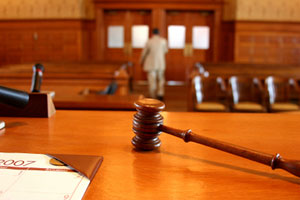Last week jurors in the high profile rape trial of a former Vanderbilt football player returned a guilty verdict against a defendant who claimed he was too intoxicated to engage in the type of malicious criminal behavior required for aggravated rape charges. Despite testimony from a defense expert witness which bolstered his claim, Cory Batey was convicted of aggravated rape and 6 lessor charges for his role in a 2013 incident involving a 21-year-old woman.
Former Vanderbilt Football Players Charged with Rape
Cory Batey was the first of two former Vanderbilt football players to face a retrial for charges stemming from the 2013 incident when he allegedly raped an unconscious 21-year-old woman in a university dorm room after a night of drinking. Batey and former teammate Brandon Vandenburg were convicted in January of 2015 of aggravated rape, attempted aggravated rape, and aggravated sexual battery, but were granted a new trial only two months later when evidence emerged that one of the jurors was a victim of sexual assault. Judge Monte Watkins granted the mistrial due to a potential conflict of interest, forcing Tennessee prosecutors to prepare for a second trial which began in March of 2016.
Trials for Vandenburg and two other former Vanderbilt players who have yet to face any trial, Brandon Banks and Jaborian McKenzie, will begin later this month now that prosecutors have finished retrying Batey for his alleged role in the incident. During the prosecution’s case, jurors were shown pictures of cell phones belonging to Batey, Vandenburg, and Banks which depict graphic images of the players apparently squatting over the unconscious victim and touching her genital area while making lude gestures towards the camera.
Since the early part of the investigation, Batey claimed that he was intoxicated throughout the incident and could not remember assaulting the victim. In order to bolster his claim that Batey did not act with the intent necessary to commit aggravated rape, defense attorneys called an expert witness to tell jurors that the defendant’s intoxication significantly affected his mental state at the time.
Defense Expert Explains Intoxication Level in Vanderbilt Rape Case
Jonathan Lipman, an alcohol expert, took the stand during Batey’s defense in order to explain to jurors the effect a night of drinking had on the defendant. According to Lipamn, the defendant was so drunk on the night of the rape that his blood alcohol content was likely between 2 and 5 times the legal driving limit in Tennessee. Lipman punctuated his expert testimony by telling the jury that Batey would have been able to function, but would likely have done “silly things, jackass things” that he was not going to remember the next day.
Prosecutors in the case took Lipman to task for the methods he used to arrive at his expert opinion, and aggressively questioned him during cross examination. Deputy District Attorney General Tom Thurman started his cross examination by forcing Lipman to admit that his entire expert testimony was based on data he had collected from Batey’s own recollection of the evening. Lipman conceded that there was no hard evidence of the amount of alcohol the defendant consumed, and Thurman pointed out that Batey’s own testimony about the number of drinks he had changed during the investigation, and included an admission from the defendant that he had stopped drinking at least an hour before the sexual assault.
Lipman responded to the questioning that even if Batey was not as drunk as he initially estimated, the defendant still would have been blackout drunk and impressionable to suggestion by others. Lipman conceded that his expert witness testimony was only as good as the data he received, but maintained his statement that the defendant was severely intoxicated.
Jury Convicts Cory Batey in Vanderbilt Rape Trial
Despite expert testimony about the effect of alcohol on his decision making, jurors again convicted former Vanderbilt football player Cory Batey for aggravated rape in his retrial. Batey received a small break because the secondary charges he was convicted of are less serious than the ones he was convicted of following the 2015 trial, but he is facing serious prison time which will be determined during his sentencing trial on May 20th.
The remaining defendants will face trial later this month, and their defense teams have not announced plans to call Lipman or any other expert witness to testify about their mental state or intoxication level at the time of the rape.





